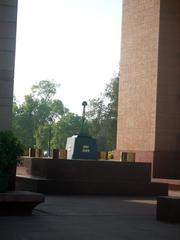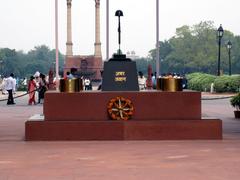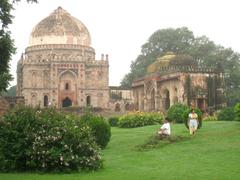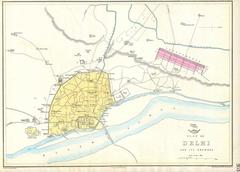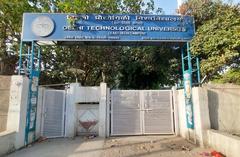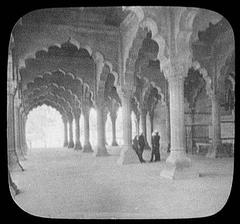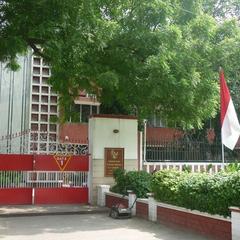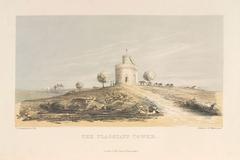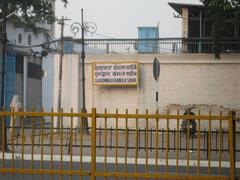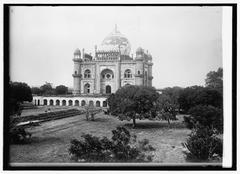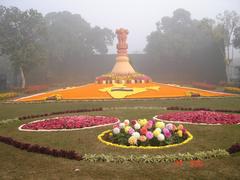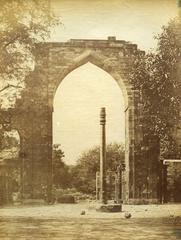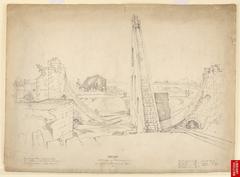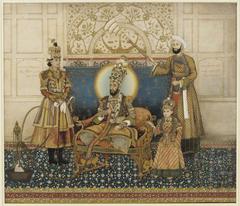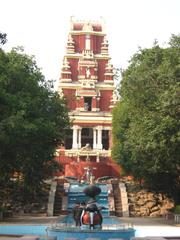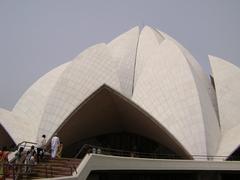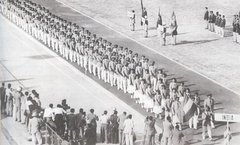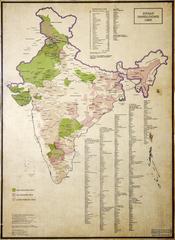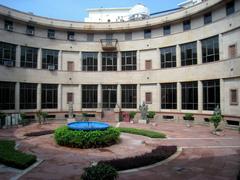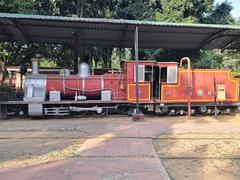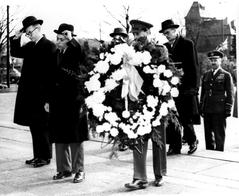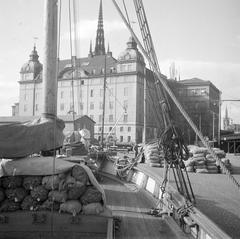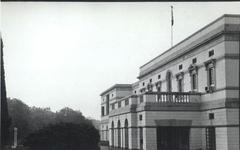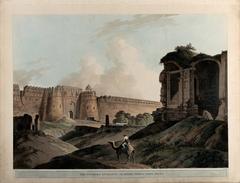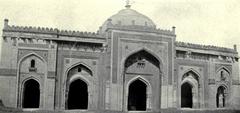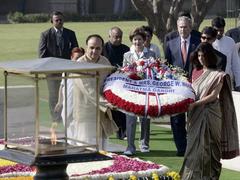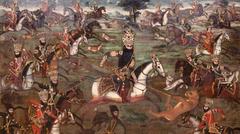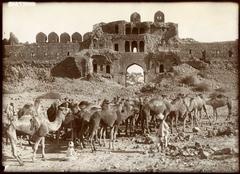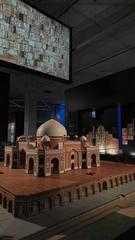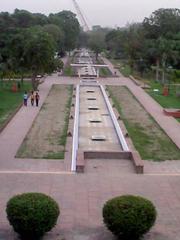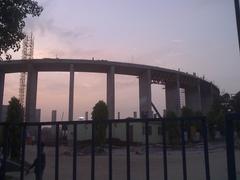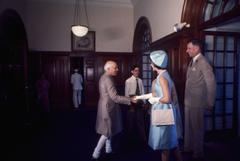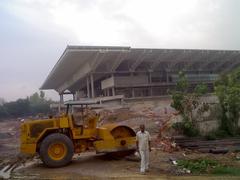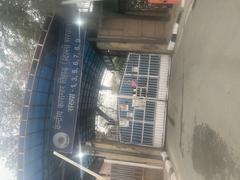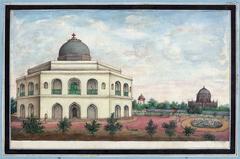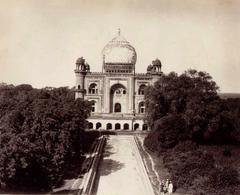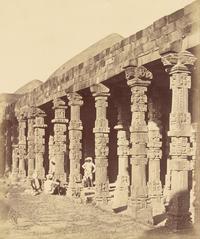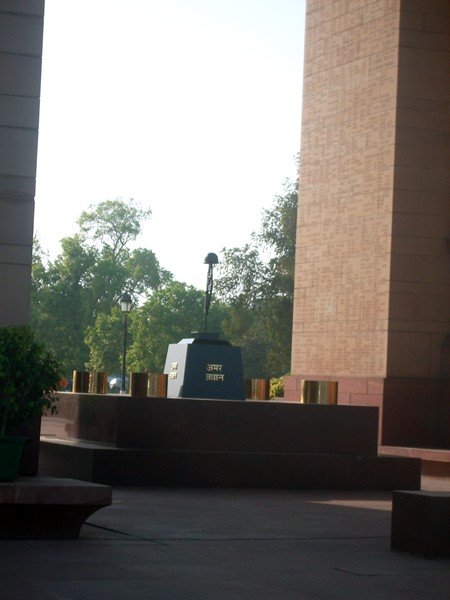
Visiting Amar Jawan Jyoti: History, Significance, and Visitor Information
Date: 19/07/2024
Introduction
The Amar Jawan Jyoti, also known as the ‘Flame of the Immortal Soldier,’ is a significant war memorial located at India Gate in New Delhi, India. Established in 1971, it honors the brave soldiers of the Indian Armed Forces who sacrificed their lives during the Indo-Pakistani War of 1971 (India Gate History). This monumental site is not only a symbol of national pride but also a place of deep reflection and respect. The memorial features a black marble plinth adorned with a reversed rifle and a soldier’s helmet, flanked by four eternal flames fueled by compressed natural gas. These flames represent the undying spirit and memory of the fallen soldiers (Amar Jawan Jyoti Design). Visitors and citizens alike gather here, especially on national holidays such as Republic Day and Independence Day, to pay homage to the martyrs. Over the years, the Amar Jawan Jyoti has become a focal point for national ceremonies and a symbol of patriotism and sacrifice (1971 War Casualties). This guide will provide comprehensive information on the history, cultural significance, visiting hours, travel tips, and recent developments related to the Amar Jawan Jyoti.
Table of Contents
- Introduction
- History of Amar Jawan Jyoti
- Historical Significance
- Ceremonial Importance
- Visitor Information
- Recent Developments
- Preservation and Maintenance
- Cultural Impact
- Educational Role
- FAQ
- Conclusion
History of Amar Jawan Jyoti
Inception and Construction
The Amar Jawan Jyoti was established in 1971 to commemorate the Indian soldiers who lost their lives during the Indo-Pakistani War of 1971. Located at India Gate in New Delhi, this monument complements the war memorial built by the British in 1931 to honor soldiers of the British Indian Army who died in World War I and the Third Anglo-Afghan War. The Amar Jawan Jyoti serves as a constant reminder of the sacrifices made by Indian soldiers (India Gate History).
Design and Symbolism
The design is simple yet profoundly symbolic, consisting of a black marble plinth with a reversed rifle capped by a soldier’s helmet. Four urns with continuously burning flames, fueled by compressed natural gas, flank the structure. The eternal flame represents the undying spirit of the soldiers and their everlasting memory (Amar Jawan Jyoti Design).
Historical Significance
The Amar Jawan Jyoti marks a pivotal moment in India’s military history, particularly the Indo-Pakistani War of 1971, which led to the creation of Bangladesh. The monument stands as a tribute to the bravery and sacrifice of the Indian Armed Forces, who lost approximately 3,843 soldiers during the war (1971 War Casualties).
Ceremonial Importance
This monument is the focal point of national ceremonies, especially on Republic Day (January 26) and Independence Day (August 15). On these occasions, the Prime Minister and other dignitaries pay homage to the fallen soldiers by laying wreaths at the monument (Republic Day Ceremony).
Visitor Information
Visiting Hours and Tickets
The Amar Jawan Jyoti is open to visitors 24/7, and there is no entry fee. However, the best time to visit is during the early morning or late evening to avoid the crowds and experience the monument in a serene setting.
Travel Tips and Nearby Attractions
Located near other historical sites like Rashtrapati Bhavan and the National War Memorial, visitors can easily plan a day trip to explore the rich history of New Delhi. Public transport and guided tours are available for convenience.
Recent Developments
In January 2022, the eternal flame of the Amar Jawan Jyoti was merged with the flame at the National War Memorial, located nearby. This move aimed to consolidate all war memorials and honor the soldiers in a unified manner (National War Memorial).
Preservation and Maintenance
Managed by the Indian Army, the maintenance ensures the flame remains eternal and the monument pristine. The use of compressed natural gas for the flame underscores a commitment to sustainability (Maintenance of Amar Jawan Jyoti).
Cultural Impact
The Amar Jawan Jyoti is a symbol of national pride and a place of pilgrimage for citizens, school groups, and tourists. It fosters a sense of patriotism and respect for the military (Cultural Significance).
Educational Role
Educational institutions often organize trips to teach students about India’s military history and the importance of national defense. This educational role is crucial in fostering a sense of responsibility among the younger generation (Educational Visits).
FAQ
Q: What are the visiting hours for Amar Jawan Jyoti? A: The monument is open 24/7.
Q: Is there an entry fee? A: No, there is no entry fee to visit.
Q: What is the best time to visit? A: Early morning or late evening to avoid crowds.
Q: Are there any guided tours available? A: Yes, guided tours are available and recommended for a comprehensive experience.
Conclusion
The Amar Jawan Jyoti stands as a testament to the bravery, sacrifice, and dedication of the Indian Armed Forces. Its historical significance, role in national ceremonies, and cultural impact make it a vital part of India’s heritage. The recent integration with the National War Memorial ensures that the legacy of the soldiers continues to be honored in a unified manner.
For more information, you can visit the official website of the Indian Army or the National War Memorial website.
References
- Cultural India. (n.d.). India Gate History. Retrieved from https://www.culturalindia.net/monuments/india-gate.html
- India Today. (2020). Amar Jawan Jyoti Design. Retrieved from https://www.indiatoday.in/education-today/gk-current-affairs/story/amar-jawan-jyoti-1637971-2020-01-20
- Britannica. (n.d.). India-Pakistan Wars. Retrieved from https://www.britannica.com/event/India-Pakistan-wars
- Hindustan Times. (2021). Republic Day Ceremony. Retrieved from https://www.hindustantimes.com/india-news/republic-day-2021-pm-modi-pays-tribute-at-amar-jawan-jyoti-101611644569720.html
- The Hindu. (2022). National War Memorial. Retrieved from https://www.thehindu.com/news/national/amar-jawan-jyoti-merged-with-national-war-memorial-flame/article38309185.ece
